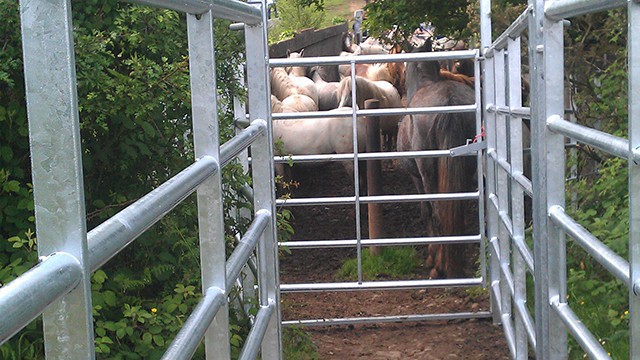Crackdown on fly-grazing in Welsh village

A village in South Wales has launched a “major crackdown” on the problem of fly-grazing – with impressive results.
Sold at auction
Llantrisant Town Trust rounded up the horses grazing on the local common and scanned each one for a microchip. Owners of the horses were also asked to produced passports.
Plans for the drift were announced a few weeks prior to the event on 1 June – and locals were warned that any horse believed to be abandoned would be sold at auction.
According to trustee Huw Rees, there were 56 horses on the common but 23 “disappeared” the weekend before the drift.
Not acceptable
“Only certain people have got hereditary rights to graze their horses on the common,” Huw told H&C. ‘We want them to graze here as its good for the environment – all we ask is that the horses are chipped and the owners act responsibly.”
As the numbers of horses on the common has increased, the level of care has diminished. The equines have suffered during the winter months, while some have been hit by cars.
“It’s our right to manage it – we can’t have horses knocked over, and last winter was so cruel,” he said. “We tried to get hold of people to feed them, but no-one knew who they belonged to.”
“One horse was left dead for days – it’s just not acceptable. It’s gone on for years and we’re not going to have it anymore, so all the horses have got to be checked.”
X marks the spot
The drift was a group effort involving local people, the British Horse Society and animal health officers from the local authority. A vet was also present to check the horses and offer microchipping for £12.50.
“Some horse owners refused to get them chipped,” said Huw. “So we marked their horse with a big red X and told they had three weeks to get it sorted, or they’d be banned.
“These horses have now gone, so happy days.”
Real success
There are now just 18 horses grazing on the common – most of which are Welsh Mountain ponies. All are microchipped and carry passports, which Huw hopes will mark the end of equine neglect.
“It’s been a real success, as we now know who all the horses belong to,” Huw said.






